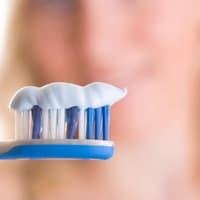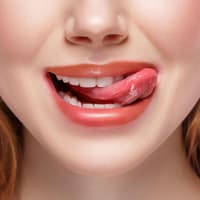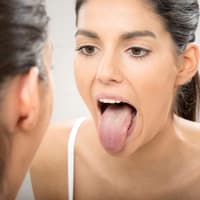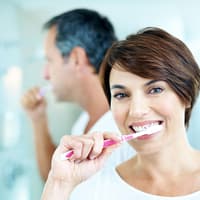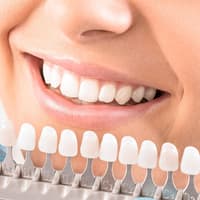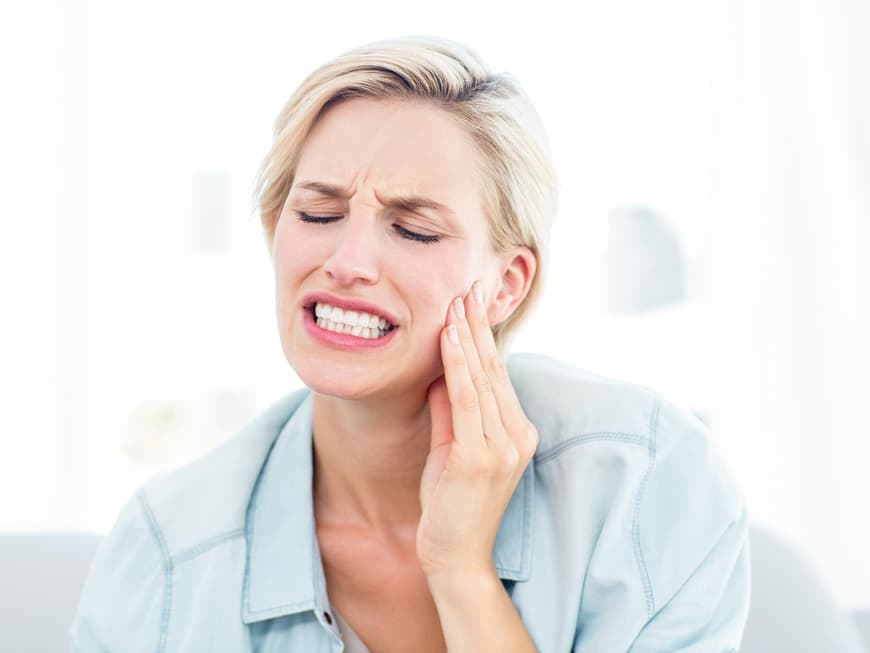
The masseter muscle is the strongest muscle in our body. It makes it possible for the upper and lower jaw to bite. And its strength is enormous: it can move up to 82 kilograms.
The temporomandibular joint - a marvel of the body
The temporomandibular joint consists of two bones that are connected to each other. Between them is a joint disk made of cartilage, in which the joint head is anchored. Above this is a thin layer of cartilage with synovial fluid, which reduces friction on the joint. In order to be able to chew or speak, the joint heads have to make a combination of sliding and rotating movements. A true marvel of the human body.
Jaw cracking: Where do the noise and pain come from?
The causes of jaw clicking or pain in the temporomandibular joint can be varied. Night-time teeth grinding during sleep is often the trigger: clenching can build up pressure equivalent to 150 kilograms. If the pressure continues, the teeth, jaw joints and muscles suffer enormously. The chewing muscle is constantly tense and the jaw is cramped. This can also cause the muscles in the neck and shoulders to harden. And this in turn can cause headaches and back pain. To protect the teeth from abrasion, the dentist can prescribe a bite splint. Unfortunately, this does not relieve the pressure on the jaw joint and chewing muscle.
Upper and lower jaw do not fit together
If the upper and lower jaws no longer fit together exactly, this can also be the cause of clicking in the jaw. Dentists say that the bite is no longer correct. Fillings, crowns and bridges may be too high or too low, dentures may no longer fit properly. Gaps between teeth can also interfere with the contact between the teeth. The incisors are often tilted slightly backwards, which means that the bite height is too low. The dentist can help here - with new dentures or perhaps even braces to correct misaligned teeth and prevent jaw clicking.
Jaw popping when chewing
Jaw clicking when eating indicates that the joint is no longer working smoothly. The characteristic sound is produced when the mouth is opened and closed. Here too, the dentist can determine the exact cause. You can also do something yourself to relieve the strain on your jaw: To loosen the jaw muscles, open your mouth as wide as possible for ten seconds every now and then. Also good: move your lower jaw back and forth from time to time. This relaxes.

